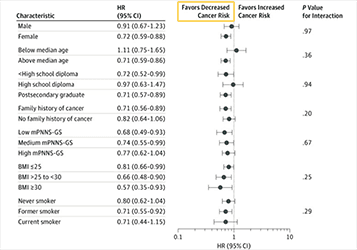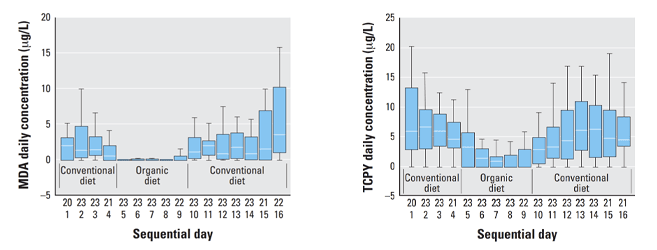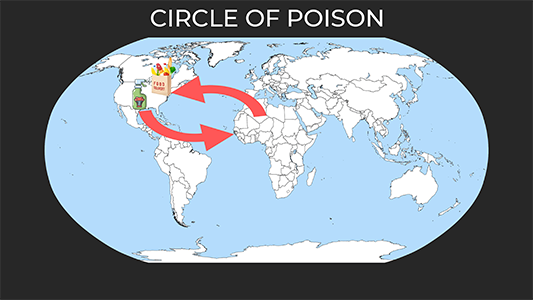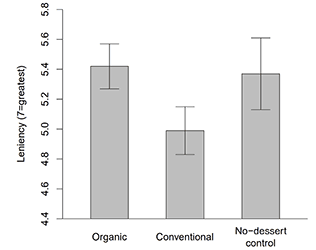Organic food costs about 10% more than conventional food [1]. On top of this, the European Union Council Regulation doesn’t include any mention of organic foods having a higher nutritional quality or healthiness compared to conventional food. And despite this, many consumers still perceive organic food to be healthier than conventional food and are willing pay a premium. Now there is some evidence of decreased pesticide residues on organic food but even the significance of these differences is questionable because actual levels of contamination in organic and conventional foods are well below acceptable limits [2]. So, does eating organic have any benefits? Is its nutritional quality the same as conventional foods? Do the miniscule amounts of pesticides not matter at all? And are there even potential downsides of eating organic that you want to avoid? Let’s get into it!
Organic Food and Health Outcomes
Organic food is produced from plant raw materials obtained without the use of artificial fertilizers and pesticides. And organic animal products come from animals that are bred in environments close to their natural state without the use of antibiotics. Because of this, there are no GMOs (genetically modified organisms) and all processing excludes the use of radiation and most food additives. But although pesticides should not be used in organic production, a study from the European Union showed that 6.5% of organic product samples still contained some pesticide residues compared to 44% of conventional produce [3]. So, the system is by no means perfect. But do these processes employed during organic farming provide health benefits to people?

Well, because there is a lack of biomarkers that measure exposure to potentially harmful pesticides, artificial fertilizers, and food additives, it can be difficult to study, and results are prone to measurement errors. Beyond that, people who typically buy organic food tend to eat more vegetables, fruits, whole grains, and less meat. They also tend to live a healthier lifestyle by being more physically active and smoking less. And all these factors make it difficult to determine the role organic foods play vs all the other healthy behaviors. But several studies have attempted to control for these factors and found that high organic food consumers report fewer allergies, less weight gain, and reduced incidence of chronic diseases like type 2 diabetes and cardiovascular disease [4]. Organic foods are also associated with reduced cancer risk for nearly everyone [11]. But why would we see these added benefits? Does organic food contain more micro or macronutrients?
Does Organic Food Add Health Benefits?
Well, a study was performed in Italy comparing 569 pairs of organic vs conventional food including whole foods like vegetables, beans, and fruit, and even processed food like crackers and cereals. What they did was compare the nutritional quality of the food based on the nutrients found on their respective food labels like calories, fat, carbs, and protein. And what this survey indicated was that, with few exceptions, organic products were not characterized by a better nutritional profile than conventional ones. Consequently, the “organic” claim should not be interpreted by consumers as proxy of “healthier” food than regular food [2]. So, whether you’re eating organic or not, you’re eating the same number of calories and macronutrients. But this study focused on the evaluation of mandatory nutritional labeling information, which does not include other nutritional components, like vitamins, minerals, antioxidants, and phytochemicals.
So, what does the research say about these components? While the information available is not exhaustive [2], the number of vitamins and minerals will obviously vary from crop to crop and farmer to farmer, but it appears organic varieties do provide greater levels of Vitamin C, iron, magnesium, and phosphorus [5]. As I mentioned, this evidence isn’t crystal clear and the differences in these vitamins and minerals isn’t that significant. What is slightly more interesting is that organic foods tend to provide greater levels of antioxidants and phytochemicals. This could be because organic foods don’t use high dose synthetic fertilizer, and therefore the plants prioritize defense against pests and disease. This defense priority could increase their antioxidant content [6]. But still, despite the possible increase in antioxidants and select vitamins and minerals, everything considered, organic food has a similar makeup as conventional food and doesn’t provide a lot of added health benefits.
Or Does Organic Food Reduce Health Risks?
But even if organic food isn’t providing many added health benefits, could eliminating various pesticides and chemical fertilizers reduce our risk for poor health outcomes? Well, the consumption of organic foods does reduce our exposure to nitrate and pesticide residues. However, the significance of these differences is questionable, because actual levels of contamination in organic and conventional foods are generally well below acceptable limits. What may be more important is how close you live to these high chemical and pesticide farms [2]. Living close to these farms can drastically increase your risk to cancer and various diseases.
But even though many studies pass over pesticide and chemical exposure due to it being below acceptable limits, I question this argument. I mean to determine if a certain pesticide or chemical exposure is safe for humans, you’d need to do a randomized controlled trial where certain people consume the “safe” limit of chemical exposure compared to another group who doesn’t consume any foods with that chemical exposure. And you’d need to carry that study out over years and decades to determine the long-term results. And doing this study would be costly and unethical because who would want to be in the chemical exposure group knowing there’s a risk of detrimental health outcomes? Noone. This makes it difficult to study and should not calm any fears.

What we do know is that when you eat conventional food, there is a significantly higher amount of pesticide that can be found in your urine. Switch to eating organic and those pesticides disappear. Switch back to conventional food again, and pesticides reappear [7]. What can be even scarier is the circle of poison [8]. This is where pesticides have gotten banned in the United States after we found out they were toxic to human health. But even though they’re banned here, companies within the United States are still allowed to export these toxic pesticides to other countries. And if you thought this was cruel already, the food grown by those toxic pesticides are then allowed to be imported back in the United States and stocked on our grocery shelves. The circle of poison. This concept, along with the fact that many pesticides which were once considered safe and are now labeled as toxic, and the fact that organic foods contain less nitrates and potentially toxic metals [3], has me worried. For these reasons, I buy organic food at every opportunity even when I had $100,000 of debt. Because to me, the health risk just isn’t worth it.

Are There Downsides to Organic?
But just because I recommend eating organic whenever possible, it’s important that we don’t overestimate its benefits. And I say this because many people do, and this confusion can have downsides. For example, people struggling to cut calories for weight loss reasons might turn to organic food and possibly consume more calories than they otherwise would. This can be demonstrated in a study where people judged the calorie content of organic and nonorganic Oreo cookies. Participants evaluating Oreo cookies “made with organic flour and sugar” provided lower calorie judgments than did participants evaluating conventional Oreos. This effect was obtained even though participants’ attention had been drawn to Nutrition Facts labels that correctly conveyed that one serving of (organic or conventional) Oreos contained 160 calories. Presumably, participants inferred that, if organic cookies contain 160 calories, then the calorie content of conventional cookies is likely to be higher. But as I mentioned earlier, calorie content is the same between organic and conventional food.

In addition, participants considered it appropriate to consume Oreo cookies more frequently when they were “organic” than when they were not. On top of thinking organic Oreos contain less calories and are more appropriate to indulge on, people eating organic also feel like it gives them more license to skip a workout. For example, if you give people a conventional dessert, they feel more obligated to exercise compared to if they didn’t eat a dessert. I can understand that. But give them an organic dessert and now they feel even better about skipping their workout compared to if they didn’t eat a dessert at all [9]. I can’t understand this one… I’ll also mention that there isn’t a lot of evidence on organic foods tasting better than conventional foods either. I mean, if you give people wine that’s labeled as organic and nonorganic then consumers say they prefer the taste of the organic wine [3]. But if you blind them, they can’t tell the difference at all. So ya know, placebo effect at its finest.
Final Thoughts
Eating organic doesn’t make you significantly healthier because the nutrient concentration in organic and conventional food is similar. But what it does do is reduce your exposure to potentially harmful pesticides and chemicals that could lead to health consequences. And I didn’t talk about this but if you eat animal products, which I don’t for health reasons, it’s even more important you eat organic because then you not only avoid antibiotics given to animals but the bioamplification effect. This is where the conventional food eaten by animals will create a high concentration of pesticides, chemicals, and metals in that animal. And then you’re eating that animal with its concentrated toxins [10]. So, if you eat animal products then organic may be even more important. But in either case, organic foods aren’t a magical pill. Just because you’re eating them doesn’t mean you can eat more food, or less healthy food, or exercise less. It’s just one component to living healthier and happier. And a component I follow despite the added cost.

